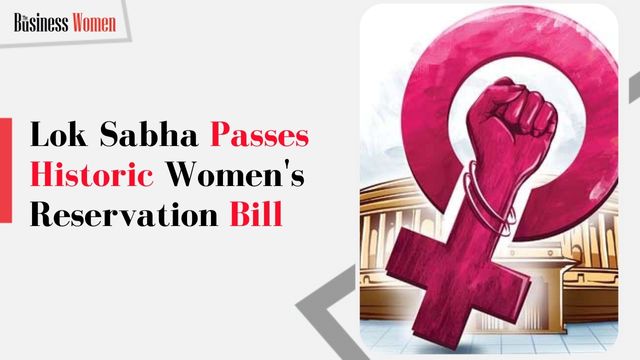Lok Sabha Passes Historic Women’s Reservation Bill
New Delhi: In a historic moment, the Lok Sabha, under the leadership of Prime Minister Narendra Modi, has finally passed the Women’s Reservation Bill. This landmark legislation aims to amend the Constitution to provide one-third reservation for women in both the Lok Sabha and State Assemblies, marking a significant step towards gender equality in Indian politics. After a prolonged 27-year journey since its first introduction in Parliament, the bill has garnered substantial support and is now set to proceed to the Rajya Sabha. This article delves into the key developments surrounding the bill’s passage, including the debate, voting, and the potential impact on Indian politics.
A Long-Awaited Victory
The Women’s Reservation Bill has been a subject of debate and discussion in Indian politics for nearly three decades. On September 20, 2023, it took a significant stride forward as the Lok Sabha voted overwhelmingly in its favour. Out of the 456 members present, 454 supported the Constitution (One Hundred and Twenty-Eighth) Bill 2023. This strong support easily met the constitutional requirement of a “two-thirds majority of the members present and voting.” Remarkably, only two members, Asaduddin Owaisi and Syed Imtiyaz Jaleel of the All India Majlis-E-Ittehadul Muslimeen, opposed the bill. The voting process, conducted manually with paper slips, took nearly two hours and witnessed the presence of Prime Minister Narendra Modi.
The Path Forward
While the Lok Sabha’s endorsement is a significant step, the bill must still pass through the Rajya Sabha. The remaining two days of the Special Session of Parliament will be crucial for its passage. Furthermore, the bill may require approval from at least half of the Indian states, adding another layer of complexity to the legislative process.
Delimitation and Timing
One notable aspect of the Women’s Reservation Bill is that its implementation is tied to the delimitation of constituencies, which follows the next census. Since the next census is anticipated to occur in 2027, the bill might not come into effect until 2029. This potential delay has raised concerns and demands from the Opposition, who call for an urgent implementation of the bill, coupled with a sub-quota for Other Backward Classes (OBCs).
Opposition Voices
During the parliamentary debate on the bill, Opposition leaders voiced their concerns about the delay in implementation. Congress parliamentary party chief Sonia Gandhi, expressed disappointment, saying, “Indian women have been waiting for their political responsibilities for the last 13 years, and now they are being asked to wait for a few more years—two years, four years, six years, eight years.” Rahul Gandhi questioned the necessity of a new census and delimitation for the bill’s implementation, suggesting that it could be put into action sooner.
Government’s Response
In response to these concerns, Union Home Minister Amit Shah clarified that both delimitation and census activities would commence after the next general election. He urged members of Parliament to rise above partisan politics and pass the bill unanimously, emphasising the importance of giving women the respect they deserve.
Prime Minister’s Appreciation
Prime Minister Narendra Modi hailed the passage of the bill with overwhelming support. In a social media post, he expressed his gratitude to MPs across party lines who voted in favour of the bill. He referred to the legislation as “historic legislation” that would enhance women’s empowerment and facilitate greater participation of women in the political process.
Conclusion
The passage of the Women’s Reservation Bill in the Lok Sabha represents a significant step towards achieving gender parity in Indian politics. While it has faced delays and debates over the years, the bill’s progress is a testament to the commitment of India’s political leaders to empower women and promote their active participation in governance. As it moves to the Rajya Sabha and potentially through state approvals, it remains a subject of intense scrutiny and anticipation. The ultimate implementation of this historic legislation could reshape the landscape of Indian politics and contribute to a more inclusive and equitable democracy.

